Project Name:
Stigma Study
Funding Dates:
2004 - 2006
Status:
Completed
Principal Investigators:
Erica Lawson, Fauzia Gardezi, Liviana C, Winston Husbands, Wangari Tharao, Ted Myers
Description:
This study aimed to explore the experiences of people living with HIV in three African and three Caribbean communities in Toronto.
Purpose and Objectives:
The study's objectives were to: 1) describe HIV-related fear, denial and experiences of stigma and discrimination reported among persons diagnosed with HIV and those not diagnosed, within the context of their own communities as well as the wider Canadian Society; 2) Describe participants’ perceptions and understanding of societal and community responses to HIV/AIDS and in particular the role of stigma and discrimination; 3) understand the role of social structures (e.g. family, economic, and cultural institutions) in creating and perpetuating HIV/AIDS related fear, denial and discrimination; 4) explore other related issues identified through narratives and group discussions.
Method:
The research team conducted face-to-face, confidential interviews and focus group discussions with members of these communities.
Population:
African and Caribbean people living with HIV in Toronto
Region:
Toronto, ON
Start and End Date:
2004 - 2006
Results:
The study found that there are a range of cultural and structural issues that may increase risk for infection, create obstacles to testing and treatment, and lead to isolation and stigma experienced by HIV positive people. Participants discussed religious beliefs and norms, homophobia or the denial of homosexuality within communities, and silence about health and sexuality as issues affecting responses to HIV within African and Caribbean communities. Gossip and fear within communities leads to isolation of HIV positive people and discourages many from seeking testing, treatment or support services. The racialization of HIV as a Black or African disease by mainstream cultural media and institutions has a detrimental impact on willingness to approach health or support services and on HIV knowledge and awareness. Participants spoke about how HIV stigma intersects with other forms of stigma and discrimination, and suggest that its impact is especially heavy on gay men, women, and poor people. While describing the damaging effects of stigma, HIV positive participants’ narratives also conveyed a sense of emotional resolve and resourcefulness in devising strategies for adapting to a diagnosis of HIV and managing the fear and stigma associated with it. For example, HIV positive participants described careful decision-making and negotiations around disclosing their diagnosis to family and friends, accessing support services, and maintaining social, cultural and community connections.
Project Indicators and Outcomes:
Funding Sources:
OHTN, Levi Strauss Foundation

